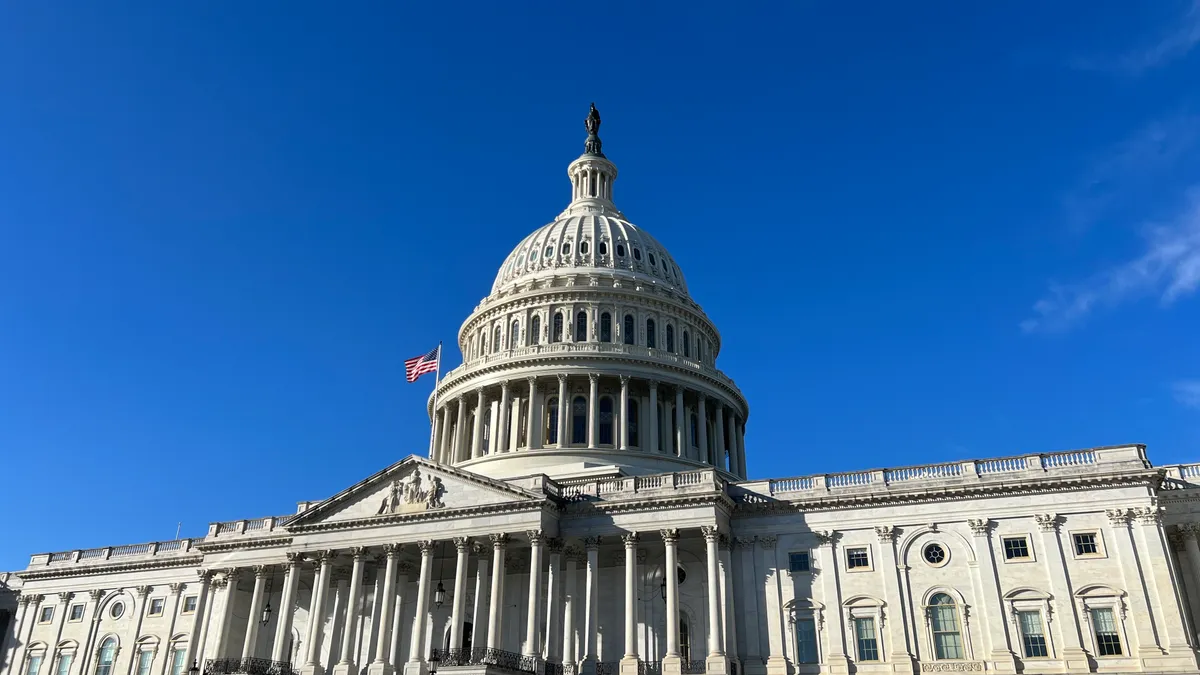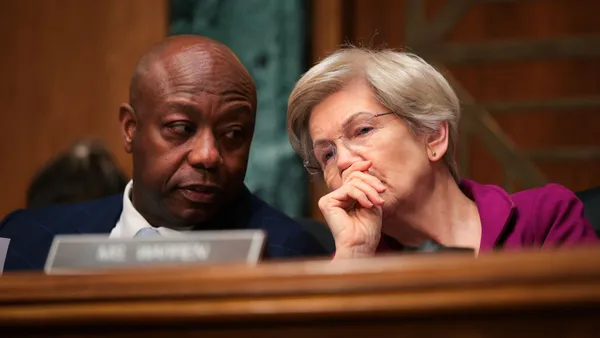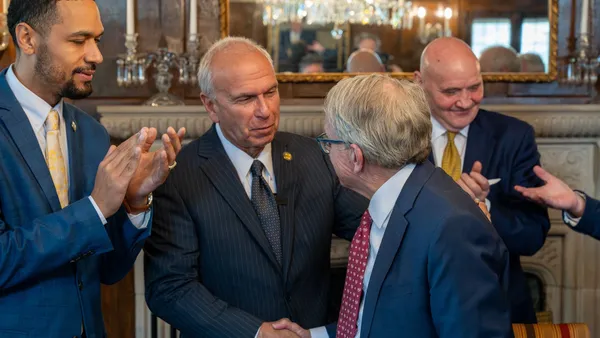Dive Brief:
- A House bill introduced Feb. 16 would prohibit the U.S. Department of Labor from moving forward with its proposed rule updating the minimum salary threshold for determining overtime eligibility under the Fair Labor Standards Act.
- Under the bill, introduced by Rep. Eric Burlison, R-Mo., the Secretary of Labor would be prohibited from finalizing, implementing or enforcing the overtime rule proposal. In a press release, Burlison said the bill would “ensure that businesses can manage overtime compensation in a way that benefits both business and employees.”
- DOL last August proposed to raise the overtime eligibility threshold to $55,068 per year, up from the $35,568 per year mark set in 2019, and it would provide for automatic updates every three years. DOL has slated a final rule for publication in April.
Dive Insight:
As employers await further word on DOL’s overtime regulations, Burlison’s bill is just one example of the pushback the agency has received since the rule’s publication in 2023.
Organizations including the Society for Human Resource Management have asked DOL to delay implementation of any new overtime rule to 2025, with SHRM citing implementation concerns on the part of HR, finance and information technology departments, as well as managers. Meanwhile, the HR Policy Association called for an extended compliance window to be incorporated into future regulations.
Employment law experts who previously spoke to HR Dive said they anticipate legal challenges to the forthcoming final rule. DOL’s effort to implement a $47,476 per year threshold in 2016 met with litigation that eventually ended when a federal judge enjoined the agency’s final rule and the White House changed hands.
Despite the uphill battle the rule may face, some attorneys have advised employers to make plans for the new proposed threshold, even if they don’t implement changes just yet.
















